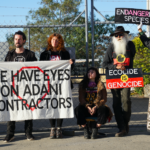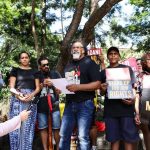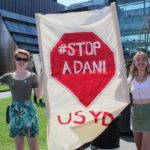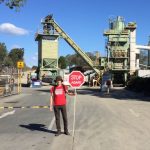Adani Sets Its Legal “Attack Dog” on Civilian Activist
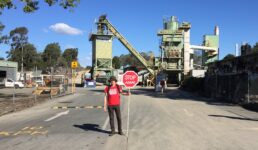
Adani announced on 26 August that it’s planning to sue long-term environmental activist Ben Pennings for the alleged damages he’s caused due to his part in the ongoing campaign to prevent the Indian mining giant’s Carmichael coal mine from going ahead in Queensland’s Galilee Basin.
Spokesperson for the Galilee Blockade, Pennings tweeted the following day that he’d only just learnt that in the lead up to the launch of the civil proceedings, Adani had secretly applied twice to the Queensland Supreme Court for permission to raid his family home.
Adani has sought an Anton Piller order, which is a damaging legal manoeuvre that consists of an unannounced raid to prevent prior destruction of any evidence. In this case, two Adani solicitors, an independent lawyer and a computer expert were to be sent in to check electronic devices.
As Pennings pointed out in a statement, Adani has been running an “attack dog” legal strategy created by a Brisbane law firm. This involves targeting financially vulnerable activists with legal tactics to get the Carmichael mine running as soon as possible.
The first victim of this strategy was Wangan and Jagalingou man Adrian Burragubba. The traditional owner launched multiple court actions to stop the Adani mine. And the transnational company took him to court in August last year, forcing him into bankruptcy, as it sought pending court costs.
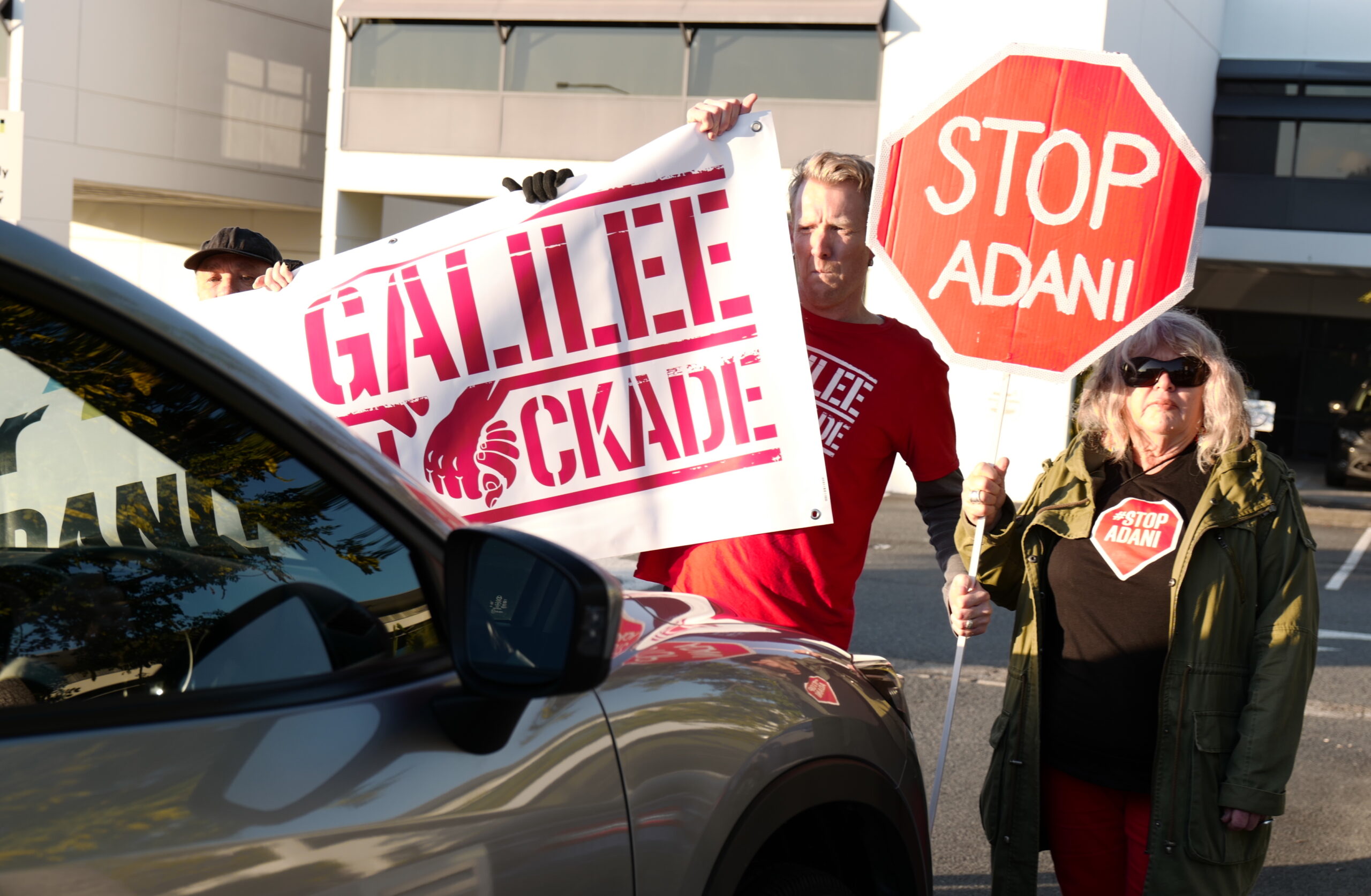
Targeting individuals
“Serial coal miner Gautam Adani’s writ against peaceful campaigner Ben Pennings will send a shudder through every Australian who values democracy, free speech and the right to peaceful protest,” said renowned Australian environmentalist Bob Brown.
“Adani’s writ follows his use of the court to evict Wangan and Jagalingou people from their land in the Galilee Basin where he is proceeding with an obscene environmentally-disastrous and unnecessary coalmine,” he told Sydney Criminal Lawyers.
The former Australian Greens leader led a car convoy across the country in early 2019, calling for an end to the Adani mine, which is set to open up the Galilee Basin – one of the largest untouched coal reserves on Earth – to at least eight more mining projects.
The decade-long campaign against Adani has made substantial impact. In late 2018, the company announced that it was scaling down its mine, as it couldn’t secure private sector investment here or overseas, after successful campaigns led financial institutions to boycott the mine.
So, since then, Adani has started to focus on its new tactic of singling out individuals.
“Gautam Adani is echoing the American Wise Use Movement’s dictum that if you can’t win the environmental argument, take out the environmental advocates,” Brown maintained.
Targeted intimidation
After learning of Adani’s attempt to raid his family home, Pennings explained in a statement that he lives there with his wife and three children, one of whom has a disability. And he added that the corporation had done this in order to locate “corporate secrets” it believes he possesses.
The attempt to have an Anton Piller order issued in relation to Pennings was made in early June, and following its rejection, Adani and its Carmichael Rail Network appealed this decision in July, only to be rejected again.
The Supreme Court of Queensland found that Adani had failed to establish it was likely that Pennings had any “confidential information” stored on his computer. And it further cited an assessment of such orders as being highly damaging to those subjected to them.
The raid on Pennings’ home was meant to benefit the mining giant in its civil action against the activist, which is supposedly all about protecting the right of Adani, its employees and its contractors “to carry out legal and legitimate business activities free from intimidation and harassment”.
Adani further asserts that Pennings’ campaign has targeted other companies that were either existing or potential suppliers or had nothing to do with it at all. And the Indian corporation is seeking compensation in relation to trespass, inducing breach of contract and intimidation.
The company then sets out that the civil action “is not about inflicting hardship on Mr Pennings”, rather it’s about protecting Adani’s rights to carry out its business and “give regional Queenslanders a fair go in terms of jobs and contracting opportunities”.
Although, as Brown pointed out early last year, Adani is set to bring automation to regional Queensland, not employment.
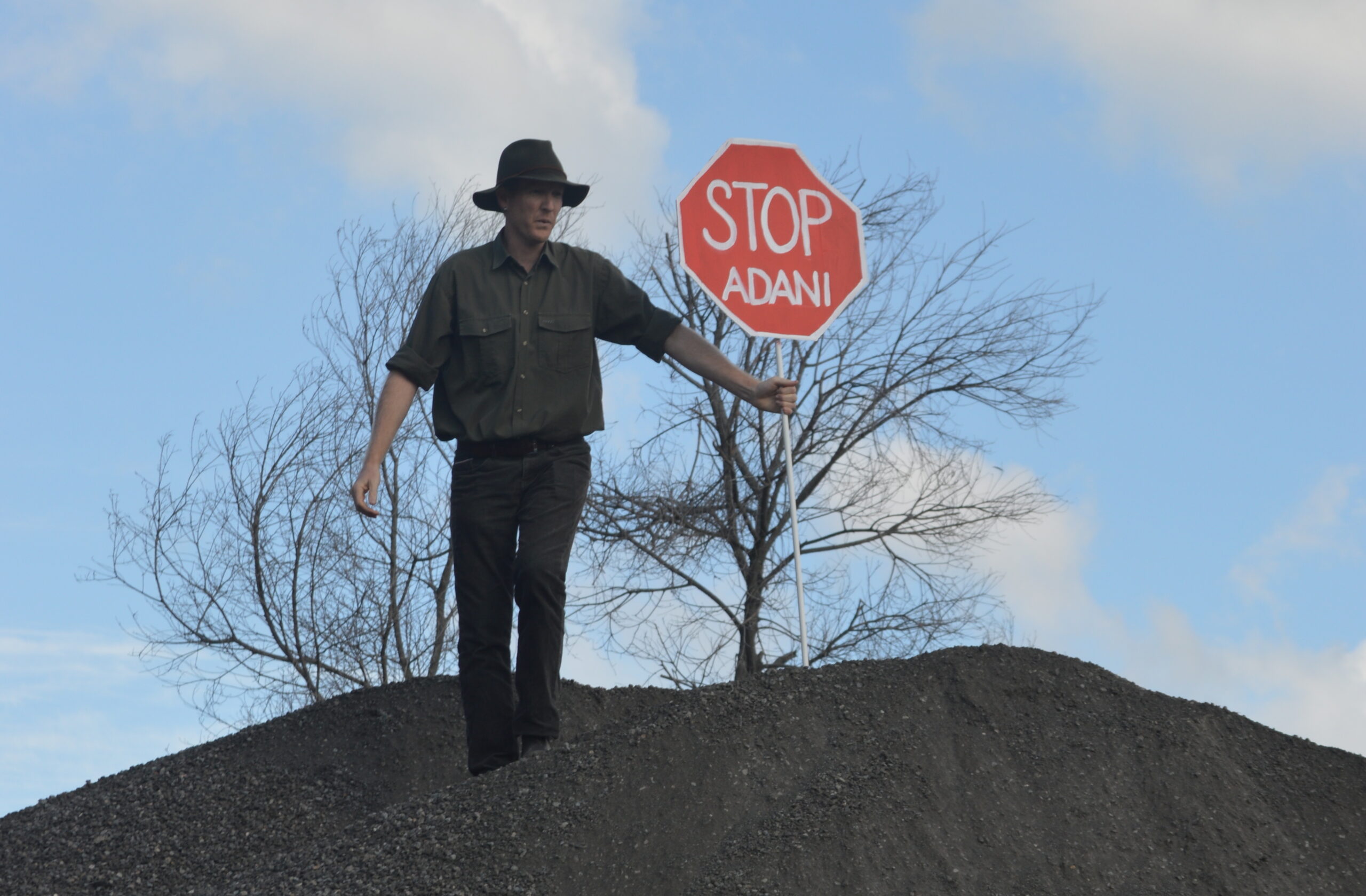
How good is silencing dissent?
“This legal action does not seek to limit free speech,” Adani’s statement regarding the civil proceedings goes on to say. “As we have repeatedly stated, we believe a diversity of views is an important part of democracy.”
However, it’s safe to say that the Indian mining giant is attempting to silence voices of opposition in the community, as while the sustained campaign against the mine hasn’t led to its abandonment, it has been effective in driving secondary boycotts.
And it’s not only Adani that’s pushing for an end to these type of boycotts. This is something the prime minister and attorney general have had on their minds since prior to last summer’s unprecedented bushfire season reaching fever pitch.
A secondary boycott involves activists putting pressure on a company, so it stops doing business with another. This type of campaign approach resulted in financial institutions globally boycotting investment in the Carmichael coal mine.
Scott Morrison told a Queensland Resources Council luncheon on 1 November that he and Christian Porter were drafting laws that would allow for secondary boycotts to be outlawed in a similar manner to the way that they’re illegal in relation to union activities.
“Environmental groups are targeting businesses and firms who provide goods or services to firms they don’t like, especially in the resources sector,” the PM said, as he laid out his plans to outlaw this type of activism, which allows “quiet Australians” to more easily participate in protest.
“Nothing more clearly defines a Liberal Nationals Coalition government than our strong, full-throated support for traditional industries like mining,” Morrison added. “How good is mining for Australia?”
In cahoots
But prior to the enactment of any new laws, it seems that Adani will have to stick to its current legal tactic of trying to destroy the lives of individual activists with the aim of silencing them and deterring others to stand up to the company’s self-indulgent campaign to destroy the earth we walk upon.
Of course, the mining giant shouldn’t have to wait too long, when you consider that the Turnbull government rushed to amend the Native Title Act 1993 (Cth) in mid-2017, after a Federal Court decision threatened the validity of the Adani Indigenous land use agreement (ILUA).
As for Mr Brown, he ended by saying that he’s “disgusted by this billionaire Goliath’s effort to silence an Australian citizen from speaking up for his heritage”.



